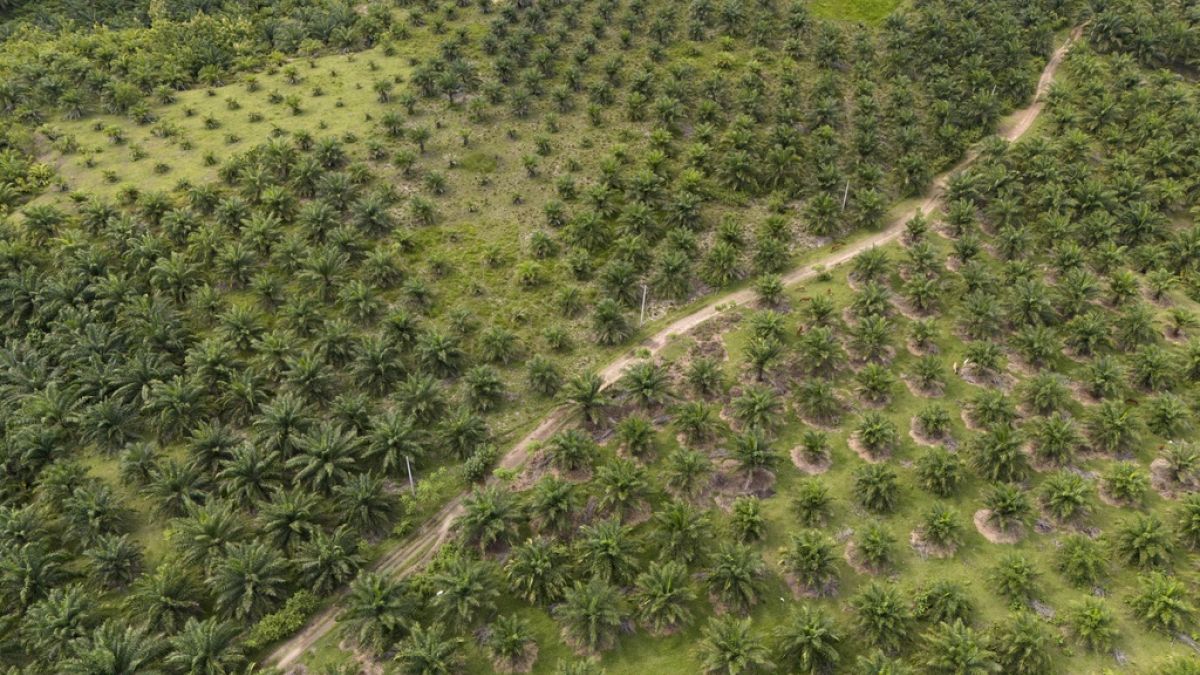Commission insists no plans to delay anti-deforestation law

Amid a growing backlash from trading partners and conservative lawmakers, the European Commission maintains it is working to implement new legislation that will ban from January the import of products linked to deforestation overseas.
Despite growing pressure from governments, trading partners and conservative MEPs, the European Commission insisted today that it remains focused on preparing for a ban from next year on the import of goods that may be linked to the destruction of forests outside the EU.
Recent months have seen series of calls to delay implementation of the EU Deforestation Regulation, whose opponents say places to high a regulatory burden on suppliers of targeted products – among them coffee, cocoa, beef, soy and palm oil – and could put firms out business and cause shortages and price rises in EU countries.
“The Commission continues to work very intensively on preparations for the entry into force of the law,” spokesperson Adalbert Jantz told reporters in Brussels. “In particular, we are talking a lot with our partners in third countries.”
But several of those third countries – notably the US and, more recently, Brazil – have called on the EU executive to delay implementation. German Chancellor Olaf Scholz said on 13 September that he had been lobbying Commission president Ursula von der Leyen to postpone the application of the law.
Meanwhile, the centre-right European People’s Party (EPP) – von der Leyen’s political home – has been pushing hard for a delay, while Austria claimed earlier this year that deferring the proposal had the backing of as many as 20 member states in the EU Council.
The issue appeared to come to a head last week when the EPP chair of the parliamentary agriculture committee reportedly claimed to have received assurance from Commission president Ursula von der Leyen that a proposal for delay was in the offing.
The Commission spokesperson avoided confirming whether or not a postponement was under consideration, stating only that the EU executive had “obviously… made no proposal so far to change the Deforestation Regulation”.
MEP Peter Liese (Germany/EPP), who is the group’s environment policy coordinator, told Euronews today that a postponement was “desperately needed” to give the EU and its trading partners time to prepare for the new law, which was backed last year by a majority of his EPP group colleagues – including Commissioner-designate for agriculture Cristophe Hansen, who steered it through parliament.
“Even those that should be an ally, for example the new Brazilian government, which wants to change the policy of Bolsonaro, can’t implement it,” Liese said.
The German lawmaker dismissed the suggestion that postponing or changing recently adopted environmental laws – the EPP also wants to reverse a 2035 ban on the sale of new petrol and diesel cars – could send a dangerous signal as the EU Green Deal enters its implementation phase under the second von der Leyen presidency.
“If we just push through everything that was agreed without reconsidering when technical problems with implementations are there, the credibility of the Green Deal is undermined,” Liese said. “So it’s better to implement a good deforestation regulation late than a horrible thing soon.”
Related
A New Book Argues That What Happens in Europe Doesn’t…
Remaking the World: European Distinctiveness and the Transformation of Politics, Culture, and the Economy by Jerrold Seigel “No issue in world
Poland plans military training for every adult male amid growing…
Poland’s prime minister, Donald Tusk, has said his government is working on a plan to prepare large-scale military training for every adult male in response t
2025 European Athletics Indoor Championships: Ditaji Kambundji secures women’s 60m…
Switzerland’s Ditaji Kambundji walked away from the 2025 European Athletics Indoor Championships in Apeldoorn on 7 March with much more than her first Europea
Takeaways from the EU’s landmark security summit after Trump said…
BRUSSELS (AP) — European Union leaders are trumpeting their endorsement of a plan to free up hundreds of billions of








